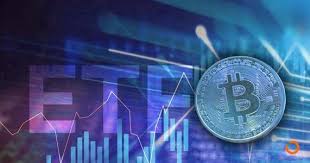"False" gold disrupts the market, BTC or demand soars
According to Reuters, unidentified sources or sources of gold are disrupting the global gold industry, and the market is increasingly demanding an easily verifiable value store – for example, bitcoin.

"Fake" gold flows into the gold supply market
“Fake” gold bars are penetrating into the vaults of the world’s largest financial institutions. In general, fake gold bars refer to counterfeit goods made of gold on the outside of cheap metal; the "fake" gold referred to in this article is indeed made of pure gold, but the problem is that they will counterfeit the gold foundry of the credible Brands come to wash their own sources. Gold from conflict zones and sanctioned countries (such as Iran and North Korea) trades at a premium of “clean” gold through this means. Companies with these counterfeits also inadvertently bear the risk of violating money laundering and counter-terrorism financing laws.
Richard Hayes, CEO of Perth Mint, Australia, said:
- Aragon, DAOstack, Colony, Moloch: Comparison of four typical Ethereum decentralized organizations
- Babbitt's first digital asset security incident report
- To launch a $1 billion encrypted hedge fund, Elwood Asset Managemen intends to
“This is a great way to 'wash' gold. Gold is real, but its source is problematic… they look fine at all, and the results are correct.”
According to experts interviewed by Reuters, thousands of such gold bars have been discovered, valued between $100 million and $300 million. However, the total number of undetected gold bars is much higher.
High verification cost of gold
The unit that finds the problem bullion needs to be forced to review the entire reserve of the entire vault. These audits are another expense in addition to the already high transportation, insurance and security costs.
Nic Carter, co-founder of blockchain analysis firm Coin Metrics, said:
“This is a big problem because re-validating gold at every step is very expensive, so gold depends on a reliable supply chain. But now, the credibility of the supply chain is also questioned.”
Due to these high verification costs, the gold ecosystem tends to be centralized. Carter believes that this can lead to bad consequences.
Systems with high verification costs often have “walled gardens (an environment that controls user access to services), such as London Gold and Silver Market Gold. Only large institutions are allowed to participate in these markets, which gives them a better treatment than terminal buyers.
Ordinary people are "cut amaranth" by gold
At the same time, ordinary people can only participate in the sale of gold after several rounds of price increases and intermediaries. For physical gold, the situation is even worse. Ordinary people can easily lose 10% immediately when they buy gold. This is why physical gold is often held by financial institutions.
In many countries, central banks and financial institutions must hold and settle target metals on behalf of ordinary users. This setup exposes gold holders to other risks, such as government confiscation. The most typical example occurred in the United States in 1933. The 6102 Executive Order of President Franklin Roosevelt stipulated that it was illegal to hoard gold coins, gold bars and certificates in the United States. A large amount of gold was forced to “repurchase”. The reason behind this order? For the Fed to increase the money supply (when the dollar is still in the gold standard) in an attempt to curb the Great Depression.
Bitcoin – a premium alternative to gold
There has been a strong debate about whether bitcoin is a cost-effective storage value. However, verifying the authenticity of Bitcoin is simple. The blockchain will organically track the source of any bitcoin. Anyone can participate in an open, unlicensed network of Bitcoin, from mining, node operations to sending and receiving transactions.
As Nic Carter said in an article in April:
“Bitcoin offers much better auditability than gold, no longer requires a reliable supply chain, and does not require high storage costs, and no qualifications when entering the market.”
Bitcoin's cryptography makes it almost impossible to "forge" Bitcoin. Double-flowered bitcoins will cost a lot of money to make an expensive 51% attack. Or, someone can create a bitcoin fork (bitcoin cash or bitcoin SV) and try to manipulate public opinion to be adopted as "real" bitcoin.
From a network perspective, it takes only $10 a month to run Bitcoin all nodes to verify the authenticity of BTC and transactions. In addition, those who do not follow the rules of the network are automatically excluded, without the need for centralized supervision.
Bitcoin developer Pierre Rochard said:
"The node does not propagate transactions and blocks that violate the rules. In fact, the node will disconnect and prohibit network participants who send invalid transactions."
In contrast, devices responsible for detecting gold forgery problems will cost at least thousands of dollars.
Alternatives to gold and bitcoin
One problem that still exists with gold and bitcoin is the issue of substitutability, the equivalent of value between units. The “dirty” gold with the source of the problem is not equivalent to the “clean” gold. Bitcoin has similar problems.
Since Bitcoin can be encrypted for tracking on the blockchain, each BTC has a unique history. These histories may involve hacking or criminal activity and may reduce the value of this part of the BTC. The extent of the discount depends on the enforcement of the law on the deposit of the French currency and the withdrawal channel.
But the method of "washing" bitcoin has become more and more complicated. By using a cryptocurrency mixer, or by purchasing mining equipment to gain new digging BTCs, criminals and tax evaders can confuse the source of the cryptocurrency and then re-enter the tokens into circulation. As a result, investors who purchase cryptocurrencies through exchanges may inadvertently receive these illegal funds and violate a series of anti-money laundering laws.
How will the organization respond?
JPMorgan’s reaction to the gold situation may herald a possible next move in Bitcoin. The agency simply stopped buying gold from Asian purification plants, except for a few that were closely monitored.
Now, if Coinbase or Coinbase is found to be dealing with "not clean" BTCs, will large financial institutions stop doing business with them? When it comes to the source of the purchased Bitcoin, how the regulator treats the exchange and the user is still a question that needs to be answered.
The debate about alternatives and sources has also raised questions about the privacy of the underlying layer. Now, with privacy currencies such as Monroe and Zcash, cryptocurrency users can make transactions almost impossible to track. How the authorities coordinate these powers with existing laws remains highly uncertain.
The value of bitcoin
Like gold, Bitcoin provides measurable utility in billing and value storage. Like gold, Bitcoin can help people “quit” the traditional financial system to hedge, and even allow citizens to get rid of the currency control of some countries.
These features are part of Bitcoin's core value proposition: Bitcoin cannot be controlled, whether for legitimate or illegal purposes. This will make Bitcoin closely watched by the government, especially when the government is aware of the risks it poses to the financial system. Fortunately for hodlers, shutting down a distributed and unprivileged system is futile in the current scale of Bitcoin.
As for the "fake" gold bars, perhaps the blockchain can help solve this problem.
We will continue to update Blocking; if you have any questions or suggestions, please contact us!
Was this article helpful?
93 out of 132 found this helpful
Related articles
- Sideways shock, waiting for the market to choose direction again
- The size of the crypto assets increased from 926 million to 2.7 billion, and the rate of return exceeded 100%. The grayscale report indicates that the funds are in large quantities.
- Want to get the blockchain out of the chain of time? A brief history of the time to read the blockchain together
- QKL123 market analysis | Market rebound is weak, hope that "Golden September and Silver 10" (0830)
- Japanese financial giant SBI Cheng Ruibo publicity ambassador? Plan to send XRP to shareholders
- Bitcoin handling fees have fallen by 88% compared to December 2017. Is the expansion rate significant or the transaction less?
- Polkadot reveals the truth, Gavin Wood explains Kusama experimental network






